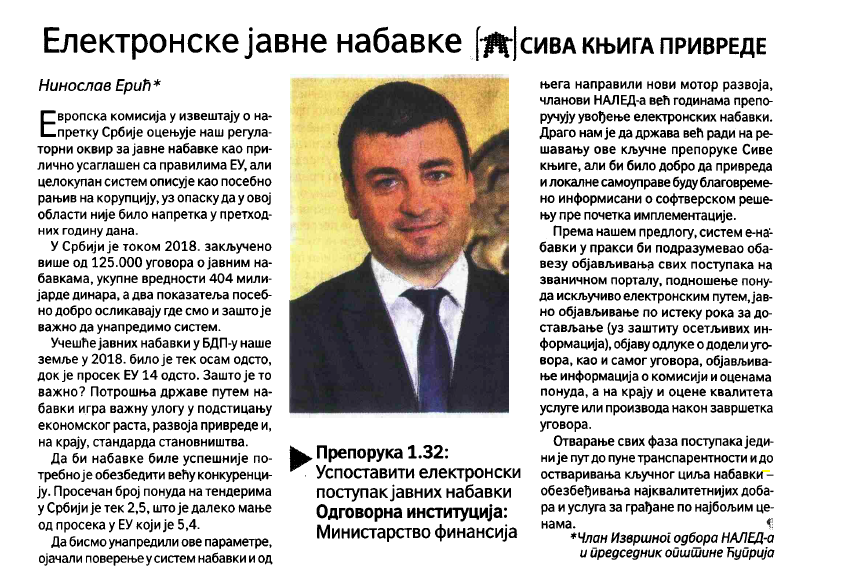Electronic public procurement
Within Serbia's Progress report, the European Commission estimates our regulatory framework for public procurement as mostly aligned with the EU regulations, but the overall system is described as particularly vulnerable to corruption, with a note that no progress has been made in this field over the previous year.
During 2018, there have been more than 125,000 public procurement agreements concluded in Serbia, their total value being 404 billion RSD, and there are two indicators that particularly reflect our current situation and the need to improve our system.
The share of public procurements in our country's GDP in 2018 was only 8%, while the EU's average is 14%. Why is this important? The country's spending through public procurements plays an important role in encouraging economic growth, business development and improving the citizens' living standard.
In order to make public procurement more successful, we need to ensure stronger competition. The average number of bids in public procurement procedures in Serbia is only 2.5, which places us behind BiH (2.54 bids), far behind Slovenia (2.9) and Croatia (3.5), not to talk about the EU average - 5.4.
In order to improve these parameters, strengthen the trust in public procurement system and turn it into a new development drive, NALED members have been recommending the introduction of electronic procurement system for years back. We are glad the state is already working on resolving this key recommendation from NALED's Grey Book, but it would be good to have businesses and local governments timely informed about the software, before the beginning of implementation.
Under our proposal, the e-procurement system would involve an obligation of publishing all procedures on the official website, submitting bids exclusively electronically, publishing bids upon the expiration of deadline for submission (with sensitive data being protected), publishing the decision on awarding agreement, and the agreement itself, publishing information about the commission and evaluation of bids, and finally the evaluation of the quality of provided service or products after the agreement is completed.
Opening all phases of procedure is the only path to full transparency with achieving the final goal of public procurements - ensuring top quality products and services for the citizens, at most competitive prices.

This website uses cookies to ensure the best user experience. By continuing to browse the site, you consent to the use of cookies.
CONTINUE LEARN MORE